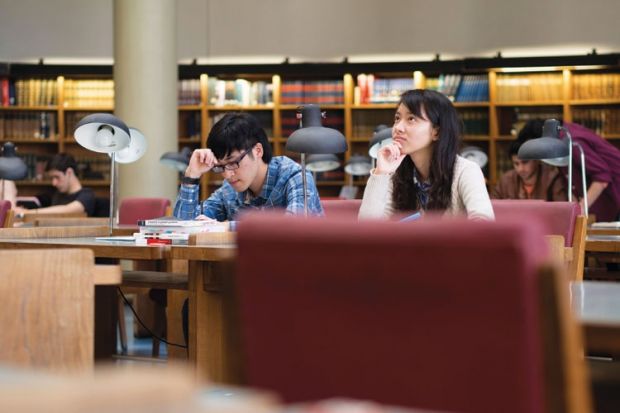Theresa May, the home secretary, has a suggestion. Universities should “develop sustainable funding models that are not so dependent on international students”.
Marvellous. I am very happy with this idea, as I would love to be able to let international students come to study with us for free.
Why? Well, I have never thought that the principal benefit to the UK from international students is the financial benefit that universities get from them. But isn’t such an idea simply financially illiterate?
Not at all. Some countries really do let international students study in their universities for free. In fact, a number of leading American universities pay the most talented international students to come to their campuses, knowing that such early investment will yield many more times the benefit for the US and the world in the decades that follow.
Think, too, of the Rhodes Scholars at my own alma mater, the University of Oxford, whose alumni include Bill Clinton and Benazir Bhutto (who as well as becoming leader of Pakistan also introduced Ms May to her husband at an Oxford University Conservative Association disco).
How is this kind of generosity possible? The answer is simple: money. The US has the funding within its universities to operate without the income from international students.
Wait. How can I say this as vice-chancellor of a Russell Group university? Aren’t we redbricks just rolling in cash as we welcome those foreign students not deterred by the latest changes in visa regulations?
We should keep in mind that we are running on a 2007 cash settlement for research. This is ridiculous for a nation committed to growing its economy. It is now 2015, and things are pretty desperate for science. We have had to pay for much of the capital equipment we need, for keeping up the state of our buildings.
So how on earth have we kept going? It is because of international students.
An obsession with cleansing the country of foreigners regardless of their contribution was once seen as a right-wing, crypto-racist issue. I now see that it is much broader than that. It is also a feeling in some families that their children are denied access to higher education because of “all these students from overseas”.
Is higher education being swamped, with strain on delivery? Not at all. The numbers of UK students we are allowed to accept is centrally decided by government. International students are in addition. Even so, some 46 per cent of our teaching income at Sheffield comes from international students, and we are by no means exceptional in this regard.
The government has decided to cut the BIS budget – and hence the funding for higher education – and make us even more dependent on international student fees. If people want to rally around the home secretary and insist that we should have fewer international students, to allow UK students a clearer run, they may find the very course they want to take becoming unsustainable.
There is no educational future in a Little England. In such a vision, your child will find easier entry to an impoverished, internationally uncompetitive industry. But we as a nation will have let slip between our fingers people of exceptional talents, who not only sustain our education system but also bring wealth to our nation; we will have lost faith with students who make our universities and our nation places of richness and scholarship.
Surely we cannot be this short-sighted?
Sir Keith Burnett is vice-chancellor of the University of Sheffield.




